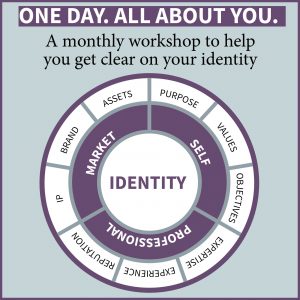Many years ago, I was part of a Mastermind group with some really talented people who challenged me every month whilst also providing great insights on the issues I faced, and accountability to take action.
I learned loads from them, and it felt like I had a board of directors rather than doing it all alone.
Now I tell you this because it was this group that taught me, the way I often felt about myself was indeed a common feeling shared by many.
We met monthly, and at the start of every meeting we would spend a little time going around the table for an update, sharing wins, challenges, both personal and business related.
Now I won’t name names because one essential part of a Mastermind is that it is a confidential environment, meaning members can share honestly without fear of seeing what they share on Facebook the following day etc.
On one occasion one of the members shared how she had always felt ‘one day she would get found out’. I will never forget the way she said it, it literally made my jaw drop.
You see she was probably the person I admired the most in the room, highly accomplished in her field, recognised and celebrated by her professional bodies, the go-to person in her field by the national press, president of her industry association and in one of the top jobs in the country. She was funny, highly academic and just an all-round impressive human being… and yet she was expressing she felt like a fraud.
It was what happened next that really rocked me though. One at a time, all of the other people around the table started to reveal they in fact feel the very same way. All highly accomplished people, empowered by her courage to be vulnerable, taking it in turns to share their feelings of not being enough. This was the first time I learned of ‘Imposter Syndrome’
What is impostor syndrome?
Impostor syndrome is the feeling that you’ve only succeeded due to luck, and not because of your talent or qualifications… and it is incredibly common.
A quick history of our modern understanding of Imposter Syndrome. It was first identified in 1978 by psychologists who theorized that women were uniquely affected by impostor syndrome. Since then it is widely acknowled that impostor syndrome can affect anyone who struggles to reconcile and take ownership of their successes.
So why do I share this?
Well, you see as part of the work we do helping people build their personal brand, then confidently take their propositions to market… We often meet resistance during the process, and it consistently manifests as self-doubt, fear of judgement and ultimately ‘Imposter Syndrome’.
It appears totally indiscriminate, and doesn’t care what your age, gender, experience or unique skills set is. BUT, and it is a big but… for some it can be totally paralysing when it comes to stepping their business into the spotlight.
So, what can you do about it?
Before I answer this question and share with you some potential solutions, I want to just explain that not everyone feels this way, and the difference between them is this… in the same situations that trigger the feeling of imposter, they simply think different thoughts. That’s all it is.
This is great news, right? It means essentially to stop feeling like an imposter you just have to change your thinking.
Here are 8 strategies to combat Imposter Syndrome.
Recognise these feelings when you have them. Self-awareness is the essential first step towards change. What are the thoughts and when do you have them? By becoming consciously aware of the conversation in your head you can flip the script.
Share how you feel. It is better to discuss these feelings with your support network rather than let negative thoughts fester. Shame keeps many people from sharing, simply knowing there is a name for these feelings, and that it is common, can be enormously freeing.
Be kind to yourself. It’s OK to make mistakes occasionally, forgive yourself quickly and learn to value the lesson. This is the only healthy response to mistake making. Also don’t forget to celebrate the things you do well.
Focus on the positive. The fact you are feeling this way means you care about the quality of your work. Remind yourself regularly on the positive impact you have for those around you, clients, colleagues etc.
Give yourself permission to not know all the answers. If your self-talk is telling you that you must know all the answers, recognise that is an impossible expectation and the healthy re-frame is that it is an opportunity to learn… and ultimately deepen knowledge.
Get comfortable working in BETA. Some might use the phrase ‘fake it until you make it’ or ‘winging it’, but you can get comfortable and even learn to value the lessons you learn when you work in BETA. It takes courage to put yourself out there, and if you always wait for perfection, you will never make progress.
Find your support tribe. Everyone needs help. Recognise that you don’t have to do everything alone. Surround yourself with positive people that encourage & support you and cull (Or limit) the negative influences. Also consider joining a Mastermind group of likeminded people, drop me a message if you would like to know more about ours.
Visualise a successful outcome. Keep focussed on the outcome. Picture yourself completing the task in hand and enjoying the inevitable recognition & treasures that follow.




